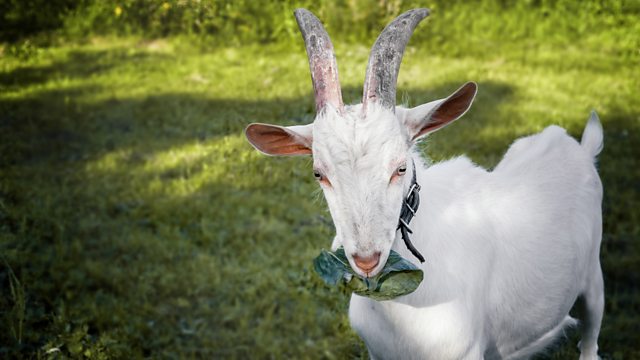Alcuin of York
How do you get a wolf, a goat and a cabbage across a river without them eating or being eaten by each other? Philip Ball uncovers the author of this famous puzzle in the Dark Ages
The Dark Ages are often painted as an era of scholarly decline. The Western Roman Empire was on its way out, books were few and far between, and, if you believe the stereotype, mud-splattered peasants ran around in rags.
However, it was far more intellectually vibrant than you might imagine. Out of this era emerged a set of βproblems to sharpen the young,β including the famous river crossing puzzle thatβs still taught in maths today. The presumed author of these riddles is Alcuin of York β βthe most learned man in the world.β And it was this monk and his puzzles that laid the foundations for a branch of mathematics called combinatorics β the thinking behind todayβs computer coding and cryptography.
Philip Ball speaks to historian Mary Garrison from the University of York to learn of Alcuin's character and how he encouraged his students to learn for the sake of learning, as opposed to salvation. And University College London mathematician Hannah Fry shows Philip just how much of a role combinatorics plays in todayβs world.
Picture: White horned goat chewing a cabbage leaf, Credit: Oxana Medvedeva
Producer: Graihagh Jackson
Last on
More episodes
Previous
You are at the first episode
Broadcasts
- Mon 18 Dec 2017 20:32GMTΒιΆΉΤΌΕΔ World Service Online, Americas and the Caribbean, UK DAB/Freeview & Europe and the Middle East only
- Mon 18 Dec 2017 21:32GMTΒιΆΉΤΌΕΔ World Service Australasia, South Asia & East Asia only
- Tue 19 Dec 2017 05:32GMTΒιΆΉΤΌΕΔ World Service except Australasia, East and Southern Africa, News Internet & West and Central Africa
- Tue 19 Dec 2017 07:32GMTΒιΆΉΤΌΕΔ World Service Australasia & East and Southern Africa only
- Tue 19 Dec 2017 15:32GMTΒιΆΉΤΌΕΔ World Service Australasia
- Tue 19 Dec 2017 18:32GMTΒιΆΉΤΌΕΔ World Service East and Southern Africa & West and Central Africa only
- Wed 20 Dec 2017 03:32GMTΒιΆΉΤΌΕΔ World Service West and Central Africa
- Christmas Eve 2017 02:32GMTΒιΆΉΤΌΕΔ World Service except News Internet & West and Central Africa
- Christmas Day 2017 01:32GMTΒιΆΉΤΌΕΔ World Service West and Central Africa
Space
The eclipses, spacecraft and astronauts changing our view of the Universe
The Curious Cases of Rutherford and Fry
Podcast
-
![]()
Discovery
Explorations in the world of science.



